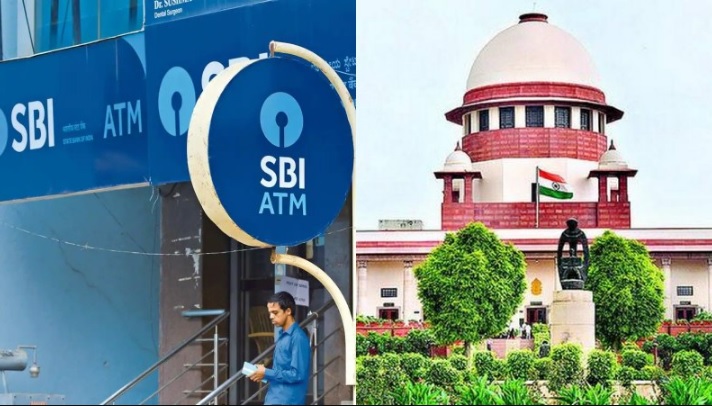
Supreme Court Criticizes SBI Over Lack of “Complete Data” on Electoral Bonds
The court invalidated the electoral bonds scheme and instructed SBI to disclose all information regarding donations made over the past 5 years.
In New Delhi, the Supreme Court strongly criticized the State Bank of India today for its failure to provide comprehensive data on electoral bonds, a scheme permitting anonymous donations by individuals and businesses to political parties. The court invalidated the scheme and instructed the bank to disclose all information regarding donations made over the past 5 years.
In response to a petition filed by the Election Commission, the Supreme Court noted that the data provided by the SBI was insufficient. The five-judge bench, led by Chief Justice DY Chandrachud, instructed SBI to divulge not only the details it had previously provided but also the electoral bond numbers.
“At the beginning of the hearing, Chief Justice Chandrachud inquired, ‘Who is representing the State Bank of India? The bond numbers have not been disclosed. It is imperative for the State Bank of India to disclose them,'”
The Supreme Court bench, in its communication to SBI, has requested the bank to clarify the oversight during the upcoming hearing scheduled for March 18.
The electoral bond numbers would aid in establishing the connection between donors and political parties.
Electoral bonds permitted individuals and businesses to contribute funds to political parties without the need for public declaration. Introduced by the BJP government in 2018 as a substitute for cash donations, they were presented as a measure to enhance transparency in political funding.
Last month, the Supreme Court invalidated the scheme, deeming it unconstitutional and expressing apprehensions regarding potential quid pro quo scenarios. Additionally, the court called upon SBI to disclose all information regarding the acquisition and redemption of the bonds to the Election Commission.
In its petition, the election commission stated that the order issued on March 11 emphasized the preservation of copies of the documents it submitted to the court in a sealed envelope during the hearing, to be retained at the election commission’s office.
The EC clarified that it did not retain any copies of the documents and requested for their return to ensure compliance with the court’s directives.


